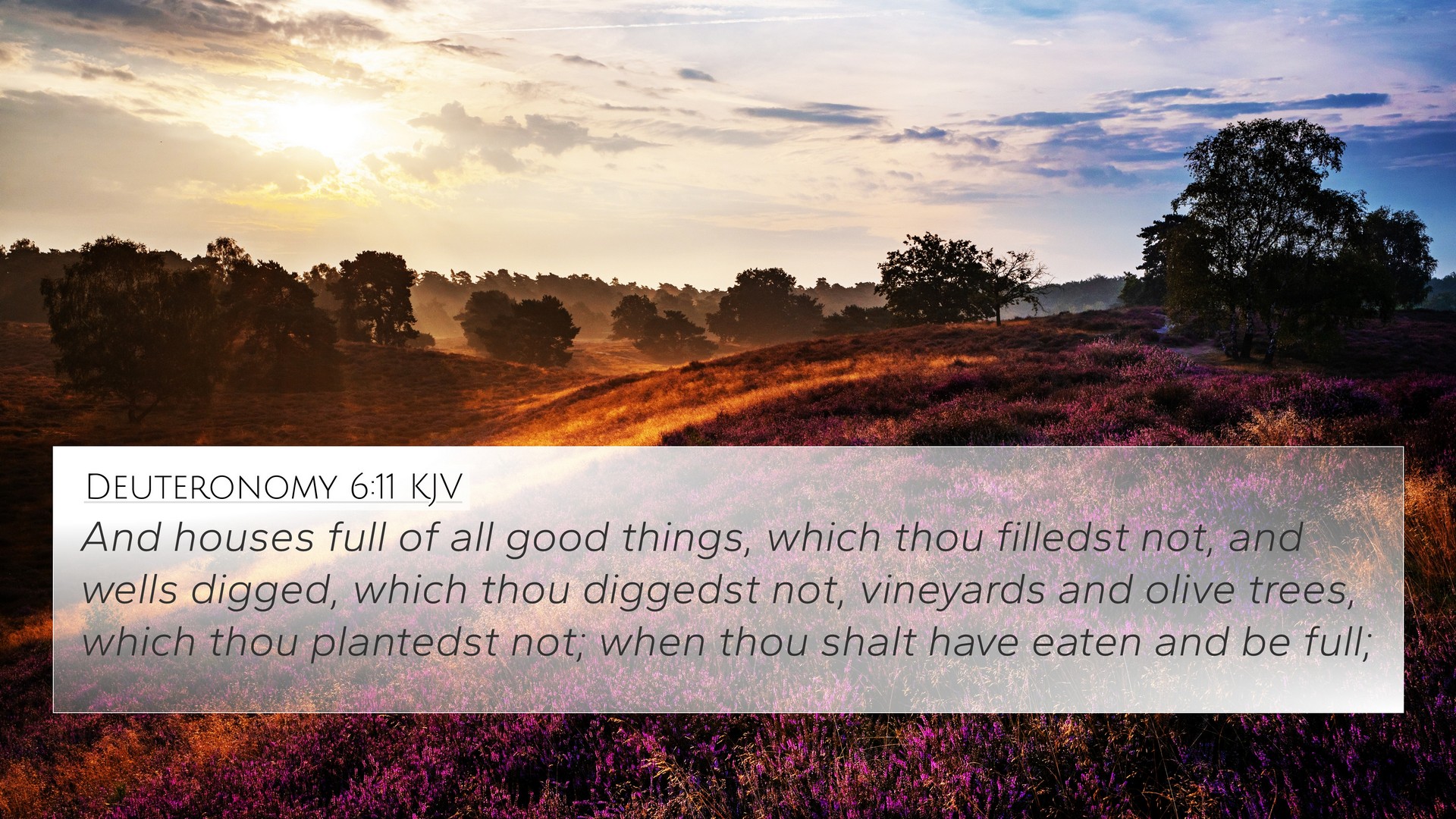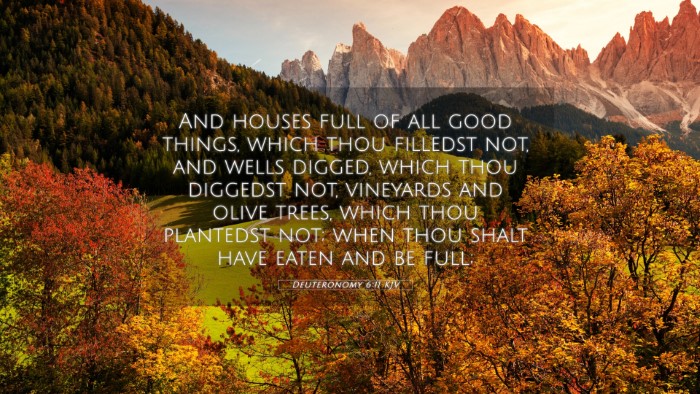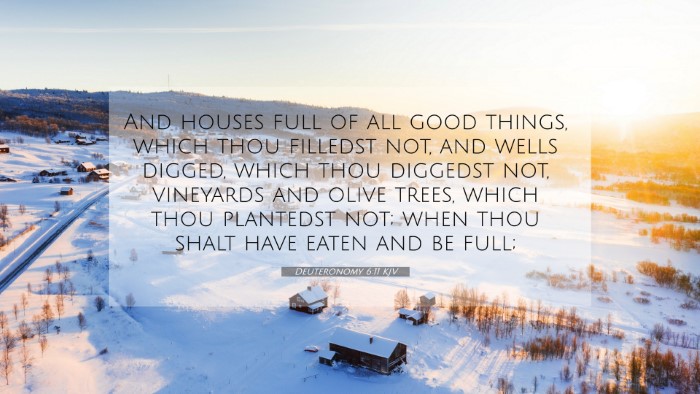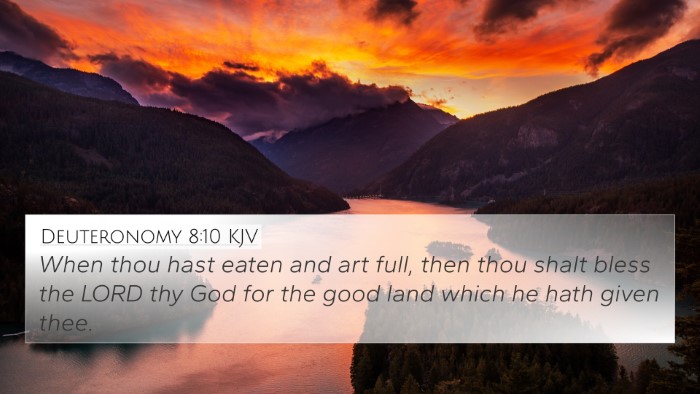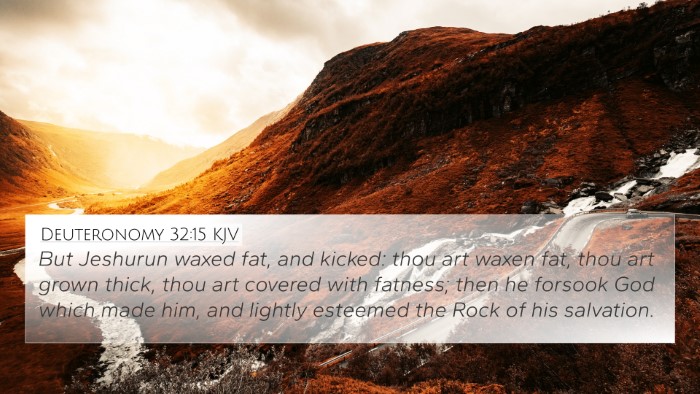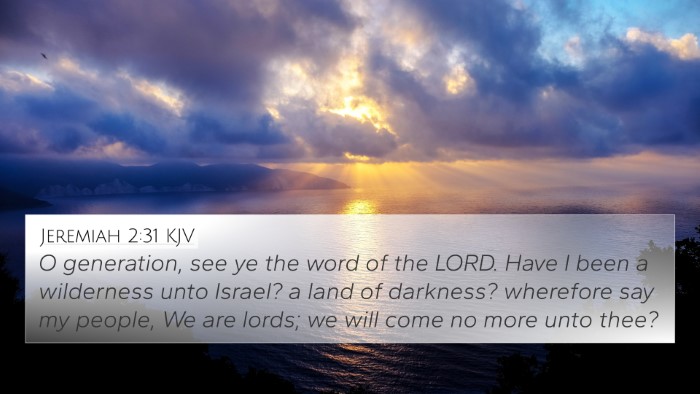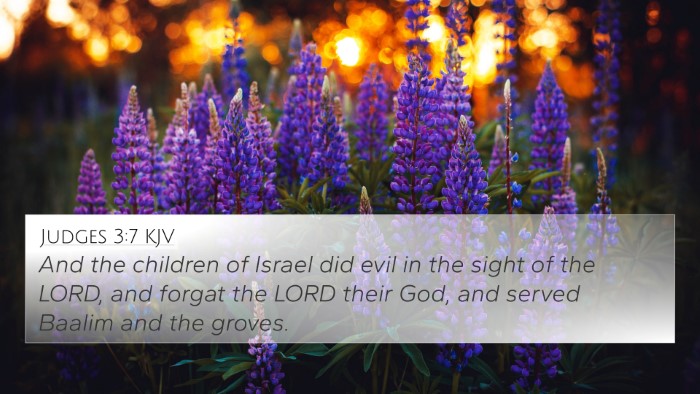Understanding Deuteronomy 6:11
Deuteronomy 6:11 states: “And houses full of all good things, which thou fillest not, and wells digged, which thou diggest not, vineyards and olive trees, which thou planted not; when thou shalt have eaten and be full.” This verse highlights important themes regarding God's provision and the responsibilities of His people.
Verse Meaning and Commentary Insights
Deuteronomy 6:11 captures the essence of God’s blessings bestowed upon the Israelites as they prepare to enter the Promised Land. It emphasizes both the goodness of God and the obligation of His people to acknowledge and remember His gifts. Here are some key insights combined from Matthew Henry, Albert Barnes, and Adam Clarke:
-
God's Provision:
Matthew Henry emphasizes that these provisions illustrate God’s readiness to bless His followers abundantly. The houses, wells, and vineyards are gifts that demonstrate His benevolence.
-
Responsibility of the Blessed:
Albert Barnes notes that receiving such blessings carries the responsibility to be grateful and to honor God with one's life. The gifts should lead to worship rather than complacency.
-
Reminder of Hardships:
Adam Clarke reminds us that these blessings contrast with the Israelites' previous hardships in Egypt. It reflects the dramatic shift from slavery to abundance.
Cross-References and Thematic Connections
This verse resonates with numerous other scriptures, creating a rich tapestry of connections throughout the Bible. Here are some relevant cross-references:
- Exodus 3:8 - God's promise of a land flowing with milk and honey.
- Joshua 24:13 - The realization of God giving them cities they did not build.
- Psalm 78:25 - God providing the Israelites with the nourishment they did not prepare.
- Matthew 7:11 - Jesus teaching about the goodness of God's gifts to those who ask.
- James 1:17 - Every good and perfect gift comes from above, linking God’s nature to provision.
- 1 Timothy 6:17 - Encouragement to trust in God who provides richly for enjoyment.
- 2 Peter 1:3 - God’s divine power has given us everything we need for life and godliness.
Inter-Biblical Dialogue
The themes presented in Deuteronomy 6:11 engage in a broader inter-biblical dialogue about God’s faithfulness and human response. This ongoing conversation can be illustrated through:
- Faithfulness of God: Throughout the entirety of Scripture, one can observe God's consistent provision.
- Human Responsibility: Across many verses, we see the importance of responding to God’s gifts with faithfulness and gratitude.
Conclusion
Deuteronomy 6:11 serves as a powerful reminder of God's abundant provision and the responsibility that comes with it. The interconnectedness of this verse with others within both the Old and New Testaments highlights the continual theme of God's blessings and our call to appreciate and utilize them wisely.
